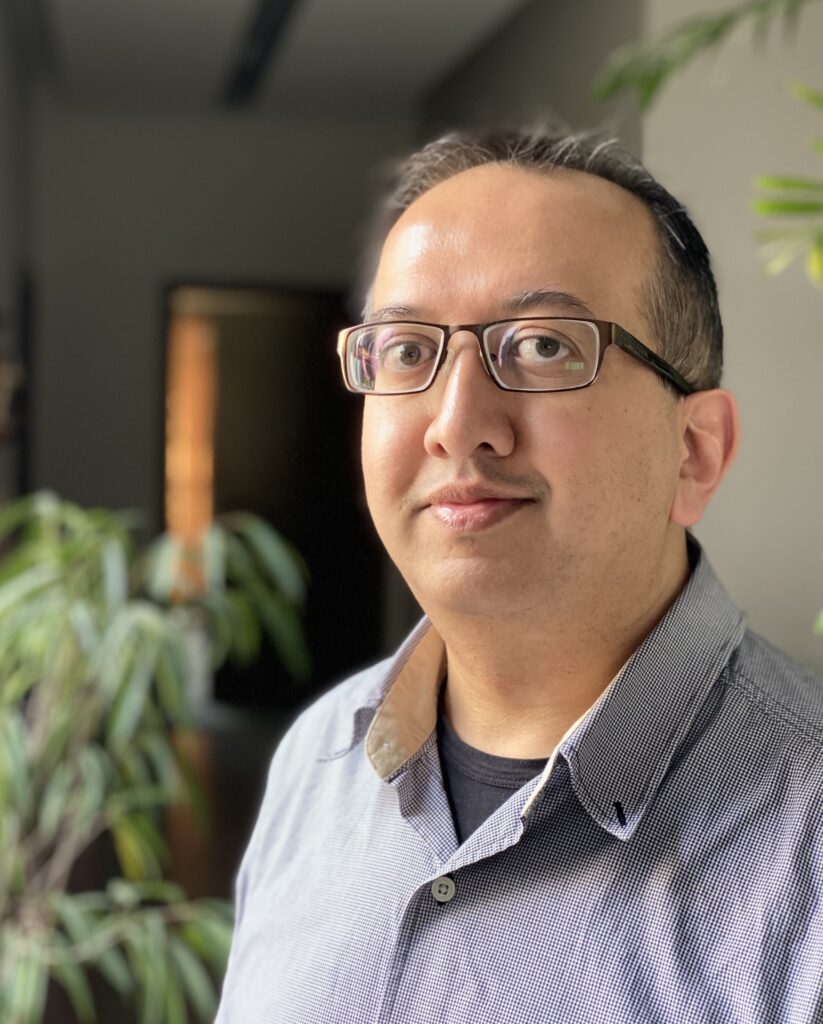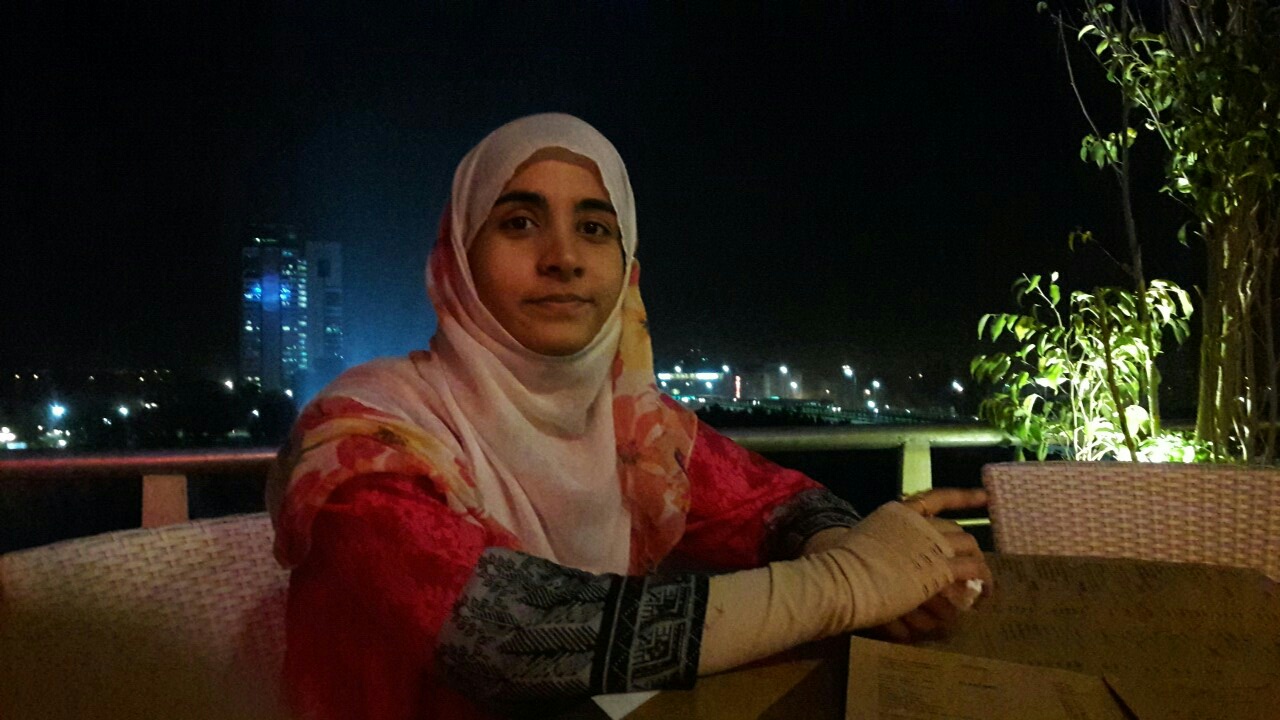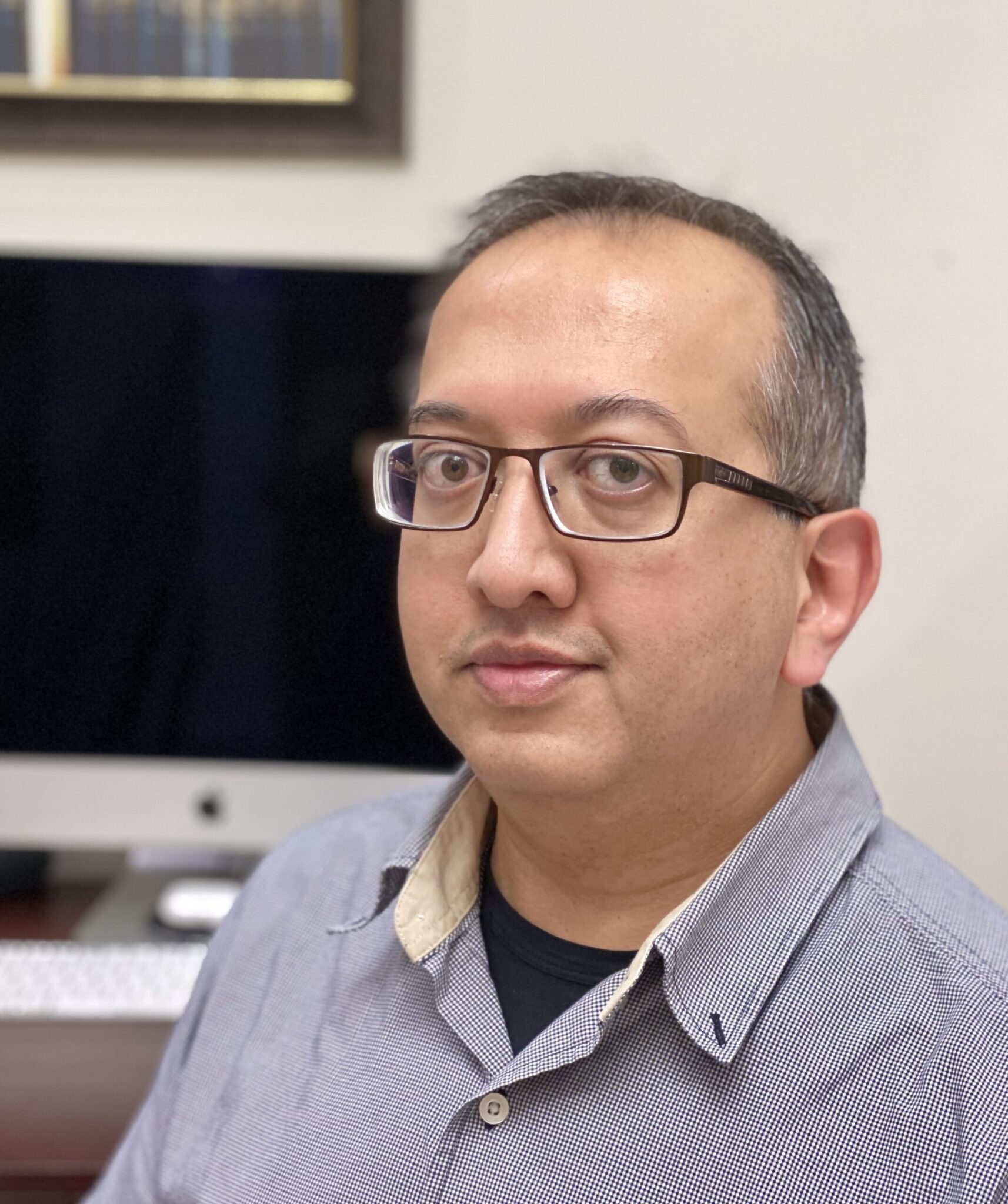Dr. Asad Hussain is a clinical psychiatrist who has been in practice for a decade. He has done his MBBS from Pakistan. Dr. Hussian is a fellow of Royal Psychiatrist College and has completed MRCPsych from the UK. He received a Certificate of Completion of Specialist Training [CCT], from Royal College of Psychiatrists, UK, a Diploma in Mental Health from the University of Kent, UK. Dr. Hussian is a qualified Educational Supervisor [QESP], Kent, Surrey, Sussex Deanery, UK. He is an expert in PG Module: Leadership in Clinical Context HEKSS, UK. Currently, he is serving as a Consultant Psychiatrist, Quaid-e-Azam International Hospital Islamabad.
Below is a brief conversation of Dr. Hussain for Scientia Pakistan’s “Being a professional in the pandemic” interview series with our team member Faryal Qazi, on mental health crisis under lockdown and Quarantine.
Faryal: As a clinical psychiatrist do you feel any behavioral difference in how Pakistani reacted to Coronavirus outbreak in contrast to the people in the rest of the world?
Dr. Asad Hussain: There is definitely a difference in how Pakistanis reacted to the COVID-19 outbreak. This is due to a multitude of reasons. Pakistan has low literacy rates. It’s more difficult to spread awareness about the outbreak and measures to control it, as people are not able to understand the level of importance of prevention, control and treatment measures being introduced and continuously updated. If you just go on the road, you will still see food being prepared, items being sold, and people buying and dealing with them. This is the case in large urban cities of Pakistan, so just imagine what would be going on in rural areas. There are unscrupulous people taking advantage of this and spreading misinformation about the COVID-19 and its apparent treatment to make money. Government control over such activities is challenging due to the violent nature and mentality of a lot of Pakistani citizens.
Religion in Pakistan plays a major role. It’s very difficult to convince people about preventative measures, the authorities introduce. One example is social distancing. No doubt many pockets of communities have adopted the measures as introduced by the authorities but unfortunately, for the most part, it’s dismissed. People don’t understand that we as a nation need to play our part and no one person can just think about him or herself.
The concept of greater good unfortunately is lost in our society. I see patients who outright state that they are not afraid of COVID-19 and do not need to follow the guidelines. These are actually the educated ones. They fail to realize that it’s not only them they are placing at risk but countless others as well.
Faryal: Why do the lockdown and Self-Quarantines disturbing people’s mental and physical health especially of youngsters?
Dr. Asad Hussain: In my years of practice, I have noted that most Pakistanis don’t have interest, hobbies etc. The common activities are usually going to meet friends or going out to eat. During lockdown and Self -Quarantines, it becomes a challenge for people to productively utilize their time. People working from home or in Quarantines very quickly lose their day to day routines. They may start sleeping late, eating more, mostly watching TV and News which is constantly filled with Pandemic updates. Anxiety levels start to rise. Lack of physically activity leads to fatigue and as days go by people start to get depressed.
The biggest impact on Youngsters is due to the behavior of adults. Isolating means living in a small area like your house and it has been going on for a significant amount of time. As adults deal with their own issues, rather than supporting, guiding, and helping youngsters, they are unable to help their children. The youngsters need guidance that how to stick to their routines and work on hobbies and interests, but as I mentioned earlier, as adults don’t have any concept of such guidance.
Youngsters may spend their time using unhealthy mechanisms like watching things they should not. Excessive energy in young ones gets expelled in an unhealthy and, in extreme cases, violent way. At times they rebel and do activities which may also place other members of the house at risk, like going out meeting other people without the knowledge of household members. We need to understand that the brain develops in a way where the pleasure center develops first and the area, which helps us understand the consequences of our actions much later. Keeping this in mind, youngsters need guidance repeatedly. We also need to understand youngsters and pretty much everyone, have never gone through a situation like this before. If not appropriately educated and guided, they are prone to anxiety and depression as they may interpret the current situation in a much different way than adults.

Faryal: When it comes to social-distancing not everyone reacts the same way esp. in Pakistan where most people do not seem supportive of physical distancing. What do you think, how can we make people aware of the severity of this situation keeping in mind the mental health of people?
Dr. Asad Hussain: I would point to my statement about literacy above and, of course, to the mentality of most people, unfortunately in Pakistan. These people do not have mental health problems. If a person understands the reasons why social distancing is in place and the dangers if it is not followed, then an illiterate person may comply. It may be that repeated guidance is needed, but the message will get through. Then there is a section of our society who just, unfortunately, look after themselves. They are educated and do not have any mental health problems but still choose to ignore the guidance and place others at risk. In these scenarios, authorities need to be given powers to use the law to make people comply. This has been the case in the U.K, U.S, and other countries as well, where police have been granted more powers to make public comply with proper guidance.
Faryal: What are the primary mental damages people are facing due to Panic being unfolded by the coronavirus?
Dr. Asad Hussain: Most people are worried about the Pandemic, about the uncertainty, which is natural. People with existing mental health issues putting others at risk, if they do not look after themselves, this may succumb to mental disorders like Anxiety or Depression.
Faryal: The recovery rate from COVID19 is 98% but still people are in panic and anxiety and focus more on the death toll. I think it’s more about human being nature that negativity attracts them more. How do we make people optimistic about this situation?
Dr. Asad Hussain: Easier said than done ☺. There is no doubt that people all over the world are panicking and making irrational decisions in the process. The mortality rate is around 1-2%. But we also need to understand that globally, the number we know is only because they were tested. There is no practical way of testing everyone so that the number could be much higher. If the number is more elevated, and those people have had mild symptoms or no symptoms, then theoretically, the mortality rate could be even lower. It’s not a question about negativity attracting more, but what information or News, people are bombarded with 24hours a day by the News channels just focus on the number of cases rising and the number of deaths. Newspapers are printing the number of deaths of people who had COVID-19 on a daily basis like they are showing a Cricket Score. I would argue, in the current scenario, people are looking for something positive.
The first step is to advise people to stop watching and searching News about the COVID-19. As I mentioned above, many people have COVID-19 but have mild or no symptoms. Even the deaths recorded globally; we are not sure that the person died of COVID-19. Many such patients had other medical problems, so it could be that the reason for death was something else, but the said patient just had COVID-19.
As a doctor, I try to counsel my patients to understand the perspective I mentioned above. I guide them to authentic websites if they want to be updated with the latest guidance on how one can help oneself and others. I emphasize the importance of following the advice by proper Authorities and not whatever is being sent by anyone via social media.
At times I even advise patients to block people on social media who constantly spread misinformation, raising the anxiety level of patients unnecessarily. There are certain counseling techniques I have mentioned below which I find really help patients feel calmer and more optimistic.
Faryal: The complete isolation till recovery and cutting of social contacts during Quarantine is harder for patients. How doctors on duty can keep patients’ hope alive and most importantly how patients in hospitals can stay positive?
Dr. Asad Hussain: To answer this question, we first need to understand that many factors are contributing to the discomfort of patients in Quarantine. Anxiety about what is going to happen to them, the idea of being in a hospital setting with so many other unwell patients and seeing patients worse than them, not being able to see face to face loved ones, etc. Given the factors involved, it is not an easy task to manage such a patient’s mental health. As I have mentioned earlier, avoiding patients looking at unnecessary News is pretty much harmful these days, providing them with activities of mindfulness. This could be entertainment in the form of dramas, movies, books, etc. Doctors should give access to patients so that they can continue to remain in contact with their loved ones via video chat or audio if possible. If noise is a concern, then texting loved ones is another way to go.
It is easier said than done, but doctors need to be patient with these patients, and counsel them to stay optimist, be honest on what their management plan is for the patient’s complete recovery. A lot of anxiety stems from not knowing how a patient’s treatment is going and why tests are being done etc. A doctor, who has a good rapport with his or her patients, can help the patient remain calm just by reassurance and I can’t emphasis this enough.
Faryal: Do you think that our youth is under-estimating the importance of Quarantine? How can we convince our youth for constructive activities instead of boredom?
Dr. Asad Hussain: I don’t think all youngsters are under-estimating the importance of Quarantine. The question is why not all youths are feeling the importance of Quarantine? I did make some comments on other questions regarding this to some extent. Youths need to be guided. As I mentioned before, there is also the element of how the brain develops; the part where we start to realize consequences at a later age. Parents and caregivers play an extremely important role in this. The guidance by respective authorities is in a language meant for adults and not all youths are the same.
It boils down to the Parents how they act themselves and how they explain the importance to the youths. Adults and youth have different routines, and I think the keyword here is “different.” Adults cannot just expect youth to follow their every direction. They need to connect with the youth on their level, explore their interests and then guide and encourage them to pursue those activities which can be done while keeping one safe.
The Quarantine could be taken as an opportunity to learn new activities, like learning a language, improving computer skills, etc. The “routine” need not be all learning as youths need to blow off steam as well. This could involve board games, computer games, etc. It could also be a chance for the family to become closer to each other. Walking, jogging or cycling in a safe area, going for a drive with the family, playing in the garden, reading a book or listening to music in private. Cooking at home or playing games or watching a movie is also one way for healthy activity. As the day goes by, try and change the routine so that the interest remains intact and try to keep a routine that involves healthy eating, exercising, and keeping you hydrated.
Faryal: Do Social and Electronic media have a role in uplifting anxiety level and mental disturbance among masses? And how can we overcome this phenomenon?
Dr. Asad Hussain: As I have mentioned in my earlier answers, unfortunately, social and electronic media mostly portray negative News, and I do agree with you that this causes more anxiety. If people receive any information, they should stop sharing and think for a while about its authenticity and search the source of the data. There is a possibility; the information could be fake if, in doubt, delete the information. Be very careful of the post in social media, which plays on your emotions as that is exactly what they are meant to do. The increase in anxiety level, making people make irrational decisions.
There is the rampant use of social media, and the best way is to go old school, I mean, picking up a book, listening to something relaxing, going for a walk where it’s safe. If feeling unusually anxious, then acknowledges that there is uncertainty around the Virus. Try not to react and take a pause. Take a step back and accept that this is just anxiety driving fears. Tell yourself the need for certainty is not necessary. Accept that whatever thoughts going through your mind are not facts and thoughts may not be accurate or real. Try and let go of the thought. Explore the present by actively noticing what you are seeing, hearing, touching, smelling, and then moving onto some activity to distract yourself.
Faryal: Mental and emotional stability of health care workers is crucial. What do you advise them about keeping their mental and emotional stability?
Dr. Asad Hussain: Health care workers are our first line of defense in this war against the coronavirus. We must not forget they, too, are human and have families like all of us. They go home each day worrying, whether they are infected and if they will put their families at risk as well. Health care workers should be provided with adequate equipment and safety gear to perform their jobs. They need to take regular breaks and not work long shifts as chances of mistakes or errors increase. Regardless of the organization they work for, they need to know the organization is doing everything to keep them safe as well and is there to support them. Health care workers should not be thrown in the deep end without any training and gear and be expected to do their job by placing themselves at risk. In summary, if the health care workers know they are protected and supported, it will go a long way in keeping them stable emotionally and mentally.
Also, Read: Why I chose not to become a clinical psychologist

Frayal Qazi is a student of BS, International Relations at ND University. She based in Quetta and currently pursuing higher studies in Islamabad.

